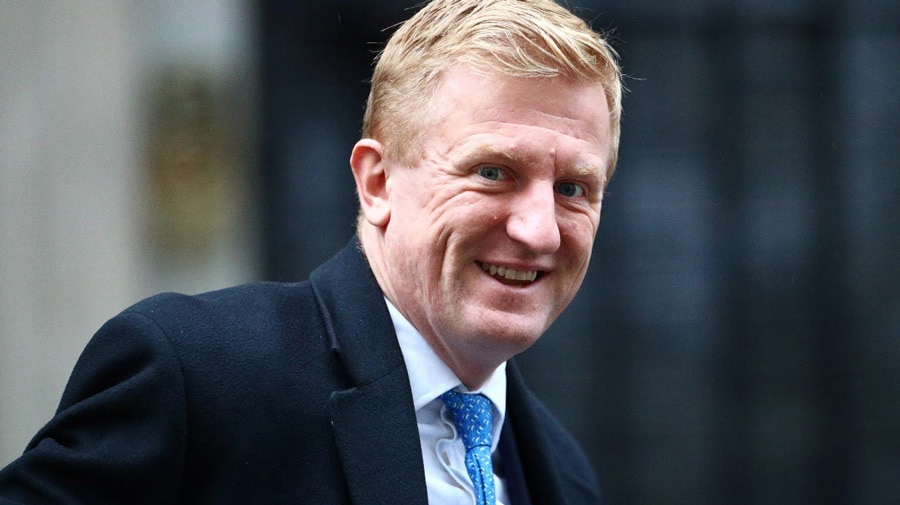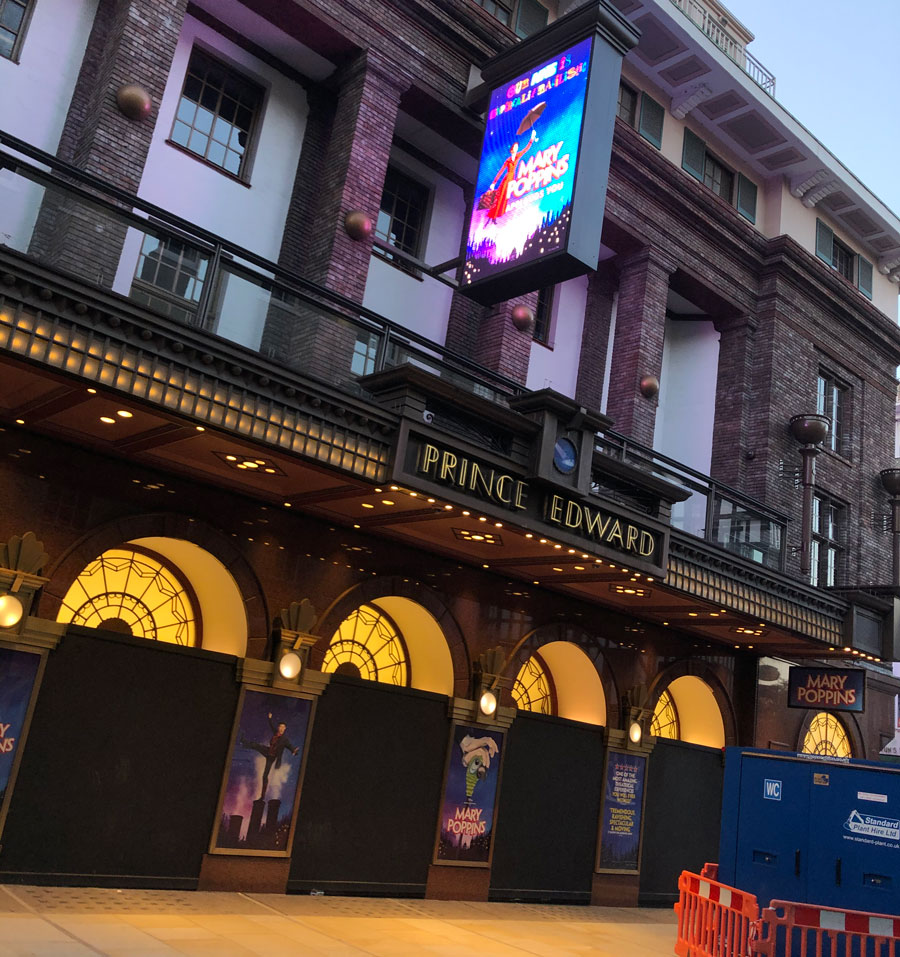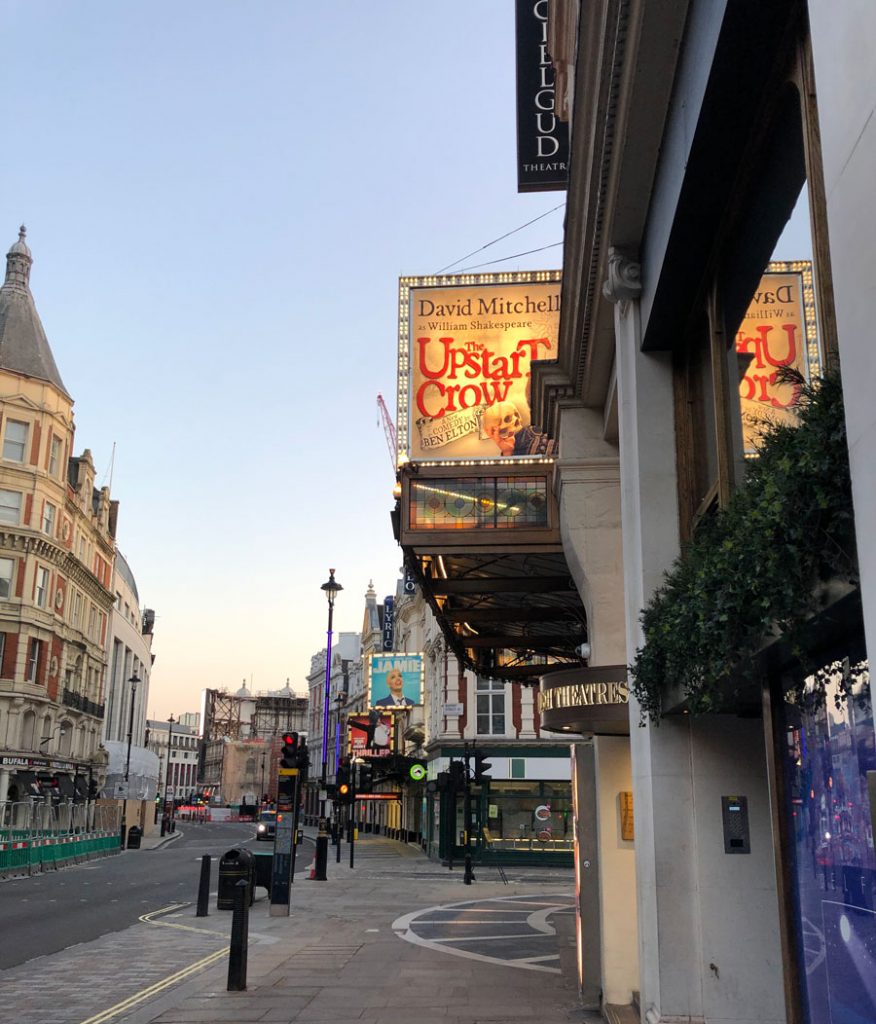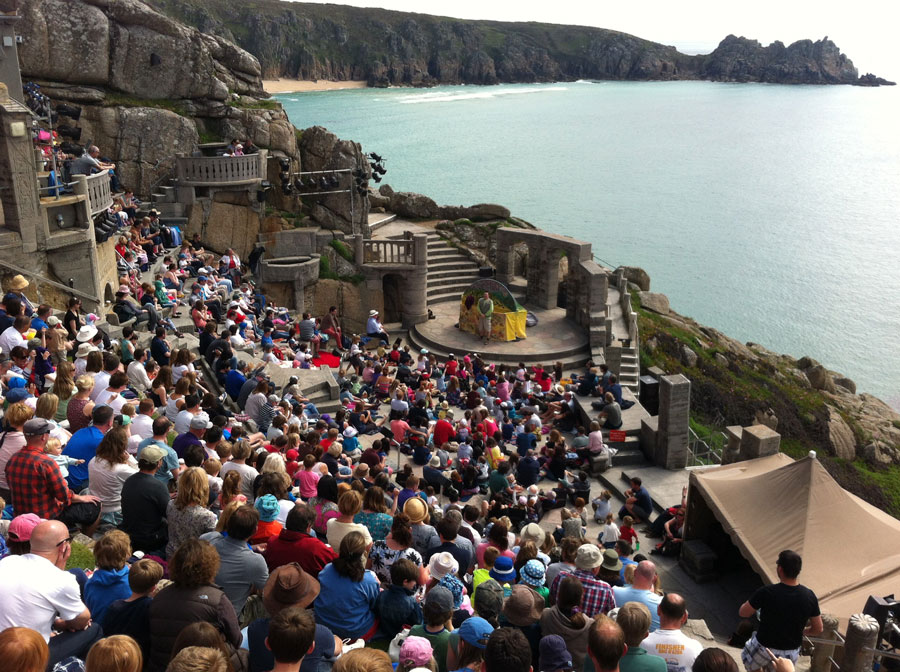This week, Culture Secretary Oliver Dowden published what the Government has called a “roadmap for the re-opening of English theatres”. 100 days ago theatres closed, now, all we have is this roadmap, with no funding and no timings.

The theatre roadmap is supposedly designed to save a multi-billion-pound domestic and export industry but a schoolchild could have knocked up this kind of bullet-point list. Theatres around the country have now been closed for over 100 days and we have been waiting patiently for Government action, but this is an underwhelming offering from a Culture Secretary who clearly knows little about an industry covered by his portfolio.
So, here is the roadmap (and yes, this is all of it):
Stage One – Rehearsal and training but with no audiences and all adhering to social distance guidelines.
Stage Two – Performances for broadcast and recording purposes while adhering to social distancing guidelines.
Stage Three – Performances outdoors with an audience plus “pilots” for indoor performance with a limited distance audience.
Stage Four – Performances allowed indoors/outdoors, but with a limited distance audience indoors.
Stage Five – Performances allowed indoors/outdoors, now with a fuller audience indoors.
Dowden came out with the right words. “I desperately want to raise the curtain on live performances in theatres and music venues as soon we can – they are the soul of our nation and a linchpin of our world-beating creative industries,” he said. “We know the challenges – theatres must be full to make money, and performers need to be safe on stage as they sing, dance and play instruments – but I am determined to ensure the performing arts do not stay closed longer than is absolutely necessary to protect public health.”

He added: “I know the public wants its theatres open, our brilliant performers want to go back to work, and we will do all we can to get them fully back up and running. Our roadmap provides a clear pathway back.”
These words are carefully chosen, but it’s the words that are missing that are my concern.
Since day one of theatre buildings being shut down, theatres and theatre-makers, together with musicians, technicians, marketing staff and theatre media, went into overdrive, and hundreds of hours of entertainment were created in people’s homes and live-streamed using social media platforms to raise money for NHS charities and those in the industry adversely affected by Covid-19. Some companies raided their archives, gaining special dispensation to broadcast material that was never meant to be made public, and rights-holders did their share in granting limited approvals to help.
Stage two of the roadmap recommends performances for broadcast and recording as the most immediate solution. Recording what though? The cost of recording any performance is not a cheap endeavour. Creatives, writers, performers, venues, not to mention performance rights (if not self-written), make this an option only for big players such as the National Theatre, Cameron Mackintosh, Andrew Lloyd Webber and some platforms like Broadway HD. They already have a storehouse of recorded productions, with high production values. I was impressed to see that even in dark times the National Theatre addressed performance and crew royalties for filmed shows that were originally only supposed to be viewed in cinemas.

Recording a large production can costs tens of thousands of pounds if rights agreements can be struck – hence the proliferation of solo concerts presented over lockdown. It would be challenging to stage any West End show, unless a one- or two-hander, with social distancing, and the cost of mounting any sort of production would be beyond the ability of many small theatres who are already cash poor and have all but closed their doors, mothballing the buildings.
We recently carried out a survey where we asked theatre-goers their thoughts on streaming. It was, for the most part, positive for larger shows but the gimmick was fast wearing off for over 50% of respondents who said they preferred live and that streaming depressed and worried them. Would live theatre ever return?
The remainder of the Government’s roadmap is pretty much useless. Without dates or timings, we could see the Government allowing outdoor theatres to re-open in the dead of winter – a point that is not lost on the management of Cornwall’s beautiful Minack Theatre. It must be one of the only theatres able to fulfil most of the guidelines already, yet it too is closed along with all the indoor theatres. In an area with a tourist sector facing losses of around £630 million this year, the management of the Minack branded the closure “ludicrous”. “We have shows ready to come back to our stage. It is ludicrous not to be allowed to perform in a Covid-safe environment to socially-distanced audiences,” a spokesman said.

Even the first stage of the roadmap provides a very limited solution. It suggests artists can rehearse, but for how long can they do that? Wages must be paid and without dates for steps 3, 4 and 5, it is not viable as they could be rehearsing for months and months.
Dowden’s statement seems to be good news for drama schools, further education institutions and conservatoires who fall under “training”, although you wonder what theatre without any physical touch might look like in the future. Poor old Romeo!
It has become clear that theatres nationwide are perilously close to closing forever. We have already seen the Nuffield Southampton and Leicester Haymarket go into liquidation. This week Theatre Royal Plymouth started redundancy negotiations, and theatre groups including Delfont Mackintosh and Nimax and producer Cameron Mackintosh have all made staff redundant. The National Theatre warns it will be insolvent by Christmas; the Globe is saying similar things. Theatres up and down the country that survived World War Two may not survive Covid-19 despite the Herculean efforts of staff and management.
Many are quietly pinning their hopes on the Christmas panto season. For most of these theatres, especially outside London, panto provides the funds to run the theatre for the best part of the year. Without it, their demise is assured. No theatre has cancelled panto, most pray for a last-minute miracle.
Meanwhile, a lot of the freelancers who make theatre work – directors, photographers, PRs, designers, freelance journalists, tech staff and many others – are already feeling the pinch having fallen through the cracks when the Government provided financial aid. Numerous promises have been made by the Government but nothing has been provided.
Playwright James Graham, speaking on BBC Question Time and on Hardtalk, proposed a potential solution in asking the Government for a temporary investment rather than a bailout which could be repaid over time. Ultimately, funds are needed and quickly or the staff, venues and the support businesses in areas such as lighting, sets and costumes, will go, not to mention the other businesses that surround theatre such as tourism, restaurants, bars, taxis. Take away the 20,000+ people that theatre brings into London each night and deserted streets could well be the norm.
Speaking about the roadmap, Graham called it “a reassuring flicker of light within darkness” but added: “What is still missing, of course, is any investment package to be able to actually do it and, without that, we can be in no doubt that the entire theatre ecology is on the verge of absolute and total collapse.”
Here is a brief sample of other feedback from the industry.
Julian Bird, chief executive of the Society of London Theatre, called on the Government to give indicative “no earlier than” dates for the different stages of the roadmap so theatres could start to plan to re-open. “Otherwise with no information at all, theatres and producers will have to assume a worst-case scenario and plan to be shut for a long period. With the rest of the economy now re-opening quickly we firmly believe that with the right safety processes in place, we can get back to full audiences in theatres within months. We need Government confirmation on this.”
Fiona Allen, CEO and artistic director of Birmingham Hippodrome, said that, without dates, the roadmap “is of no practical benefit whatsoever for the performing arts sector”. “We need dates to work towards in order to plan properly or more jobs will be lost and more venues and companies close. How is this not clear?”
Julia Fawcett, CEO of The Lowry in Manchester, said: “Venues up and down the country – including The Lowry – are desperate to begin preparations to re-open their doors and get fantastic work by artists onto our stages for the public to enjoy safely. Instead, we received a vague and ambiguous statement that has confused many and helped no one. Other sectors have been given dates to work with – and performing arts should be no different. Without a clear plan, with clear timetables for implementation, we are putting the entire theatre sector further into crisis, our sector deserves better.”
Matt Trueman, creative associate at Sonia Friedman Productions, which stages shows such as Harry Potter and the Cursed Child, dismissed the plan as “fag packet stuff”. “Destinations without directions – that’s not a roadmap, it’s a fantasy gap year.”
